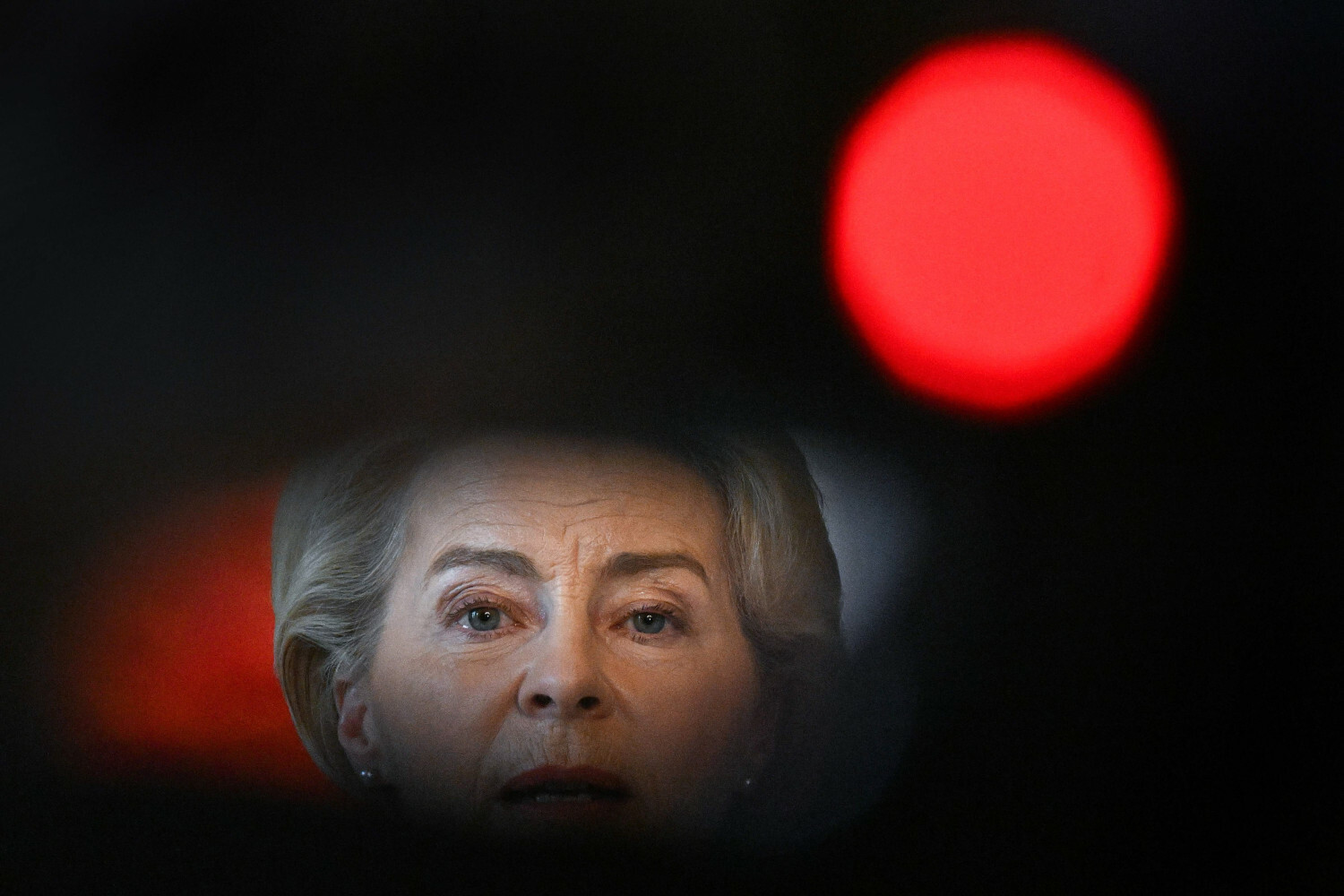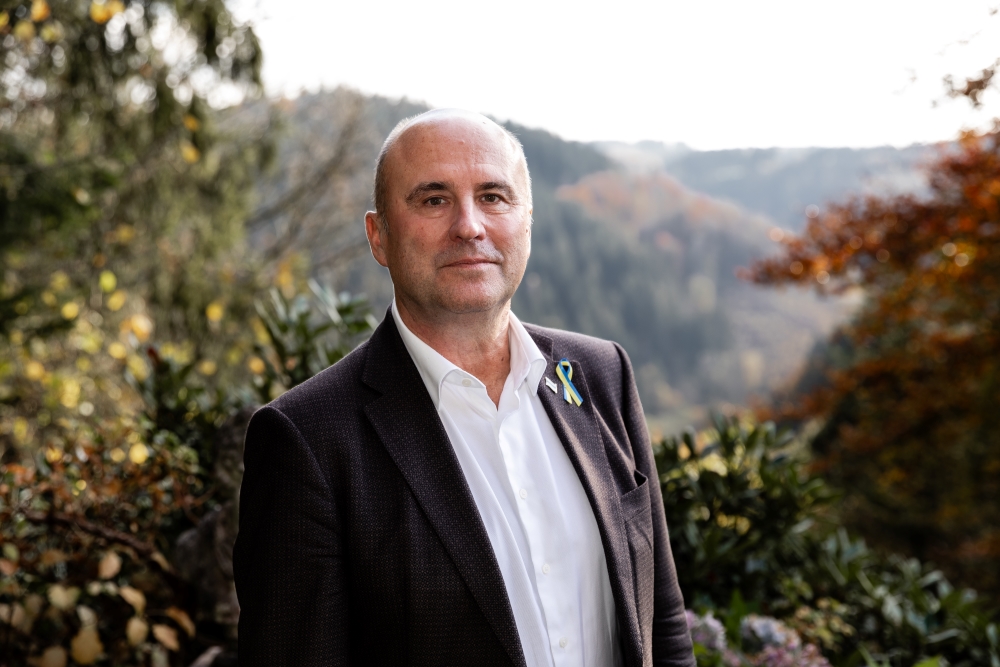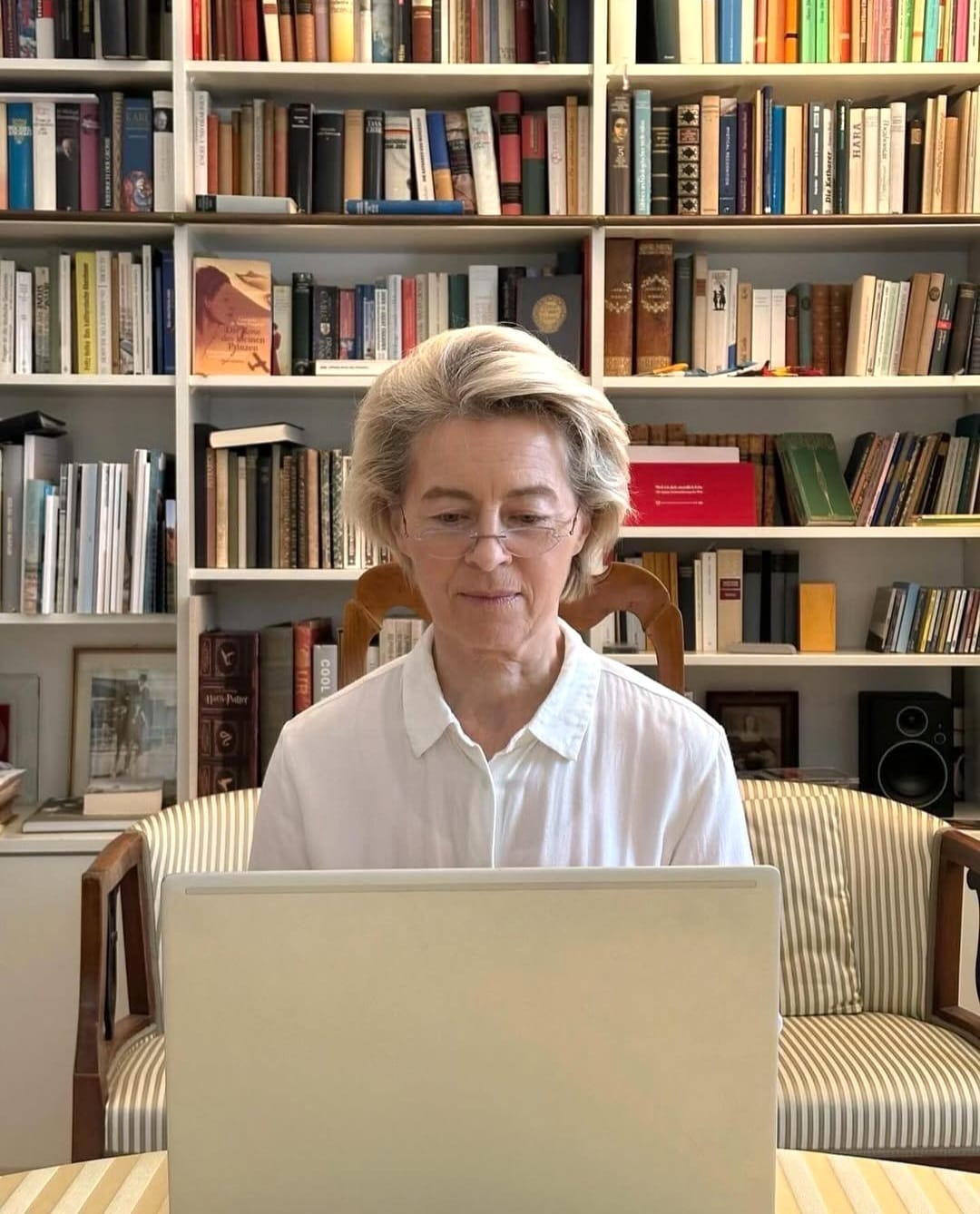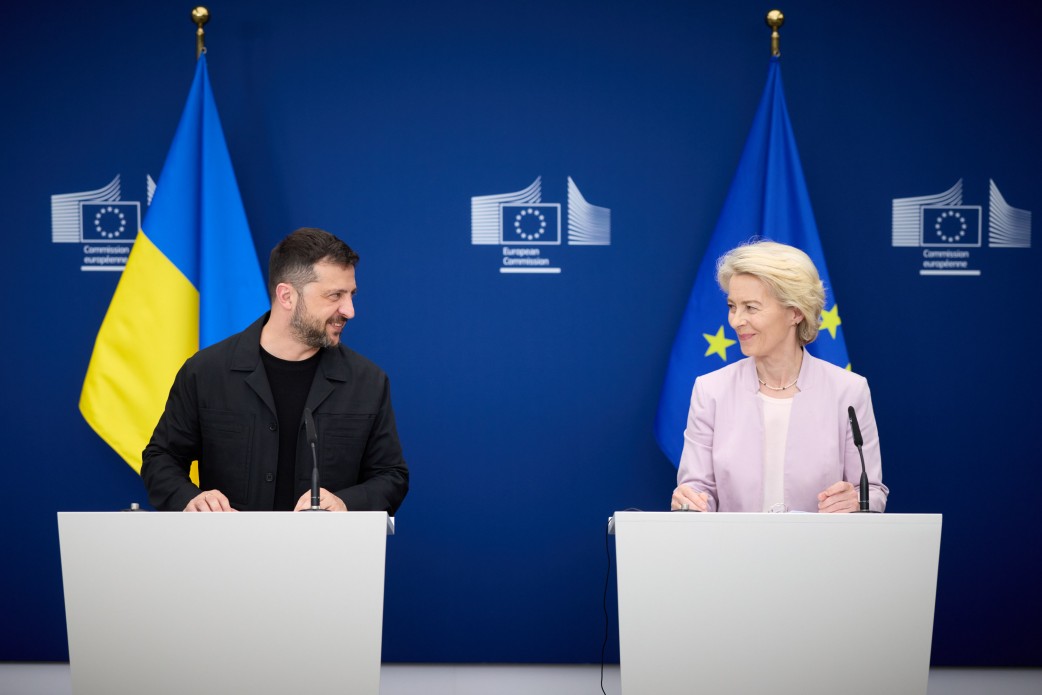Support Sestry
Even a small contribution to real journalism helps strengthen democracy. Join us, and together we will tell the world the inspiring stories of people fighting for freedom!
A herald of apocalypse or a much-needed disruptor of the current world order? Donald Trump spent his first three weeks as US president in turbo mode. Dozens of decisions and executive orders, even more statements and extended interviews - he has dominated the global news space and is ready for decisive action.
The absolute priority of the new Administration is ending the war in Ukraine. Is a swift peace possible, and how long-lasting might it be? Senior fellow and adviser at the Centre for European Policy Analysis (CEPA), British writer and journalist Edward Lucas answered these and other questions in an exclusive interview with Sestry.
A spring truce
Maryna Stepanenko: According to The Independent, Donald Trump wants to end the war in Ukraine by spring. How realistic is such a plan?
Edward Lucas: I do not think even Trump himself seriously believes he can end the war by spring. He may be able to initiate some negotiations. Perhaps he will manage to alter the current parameters of the war, but he will not end it.
The US president has repeatedly stated that he will exert pressure on Moscow, including through sanctions, should the Kremlin refuse to negotiate. We can see that the first threat - lowering the price of oil - has already begun to materialise. Trump said that reducing prices would affect Putin’s ability to finance the war. How effective could this approach be, considering Russia’s ability to diversify its energy exports, for example, to China or India?
A collapse in oil prices is a good idea in terms of increasing economic pressure on Putin. However, I doubt that it will be a decisive factor. I think the Russian economy has demonstrated remarkable resilience, both in terms of physical endurance against Ukrainian attacks on infrastructure and in terms of its export stability, import substitution capability, and overall ability to cope with sanctions. Thus, I would be surprised if low oil prices forced Putin to the negotiating table in a weak position. Nevertheless, I still consider it a good move.
Do you believe that Trump’s «carrot-and-stick» strategy - combining pressure on Moscow with open offers of negotiations - could force Putin to make concessions?
It is possible if you have the right sticks and the right carrots, but I am not an optimist.
I believe there is a significant risk of wishful thinking. It is entirely possible that Putin will irritate Trump to such an extent that the latter will return to supporting Ukraine with all the necessary weaponry, apply real pressure on Russia, and deal the Kremlin a decisive defeat on the battlefield. We would all be delighted by this, but I think the chances of it happening are rather low.
It is more likely that America will huff and puff but will not fundamentally change the situation. I think it is quite probable that Trump will tell the Europeans: «If you are so concerned about Ukraine, then fix the situation yourselves». Meaning they will have to provide more money and weapons instead of coming to the United States expecting Washington to solve all their problems.
This fully aligns with Trump’s worldview. He needs one major deal in the coming months because he wants to receive the Nobel Peace Prize. And this could be a deal that at least temporarily halts Russia’s war against Ukraine
However, it could also be a deal between the Israelis and major Arab states, particularly Saudi Arabia. Thus, he is searching for a large-scale agreement, but it does not necessarily have to involve Ukraine. And I believe that a peace deal concerning Ukraine will be much harder to achieve than one in the Middle East.

So, if the new Administration fails to make progress in resolving the war in Ukraine in the coming months, what are the most likely scenarios? Could Washington lose interest?
If Trump does not consider European security important for America and believes that Europeans should handle it themselves, then Ukraine, as a key issue of European security, may fall out of his agenda.
Europeans will have to make considerable efforts to convince Trump of Europe’s importance, as he perceives it rather negatively and seeks to exert pressure for economic and business reasons
Could one imagine Trump addressing Congress to request another 100 billion dollars for Ukraine? It is not impossible, but it is unlikely. Therefore, large volumes of American aid for Ukraine this year seem unrealistic.
At the same time, Putin believes he has the advantage on the battlefield and that the West is losing unity. He sees a gradual decline in morale in Ukraine and is not inclined to negotiate. If he is convinced he can win by military means, why would he agree to talks?
Coincidentally, in Putin’s recent statements, we hear that Russia is supposedly ready for negotiations. The Russian president is also flattering Trump, speaking about his «good relations» with the current US president. What signals is Moscow thus sending to the White House?
I do not consider Putin an idiot. And he knows it is important not to offend Trump. Of course, he will say he is ready for negotiations.
However, I do not believe that Russia currently sees a need for serious negotiations. I suspect that Putin will sit at the negotiating table and say: «We want a demilitarised Ukraine. We want guarantees that you will never join NATO». And another two or three demands, including the incorporation of temporarily occupied territories into Russia.
Would Trump consider this unacceptable? Perhaps not. Would Ukrainians consider it unacceptable? Almost certainly. Would Europeans be willing to support Ukrainians in their continued resistance? Possibly. But I am not sure.
But I believe that this is the most likely scenario. From Ukraine’s perspective, we will see quite an unreasonable negotiating position from Putin. And this is not the same as the beginning of real negotiations
What can Ukraine do?
Trump has said he is ready to meet with Putin at any time. Is there a risk that Ukraine’s fate could be decided behind Kyiv’s back?
There is always a risk of another Yalta (referring to the Yalta Conference of 1945, when the leaders of the USA (Roosevelt), the UK (Churchill) and the USSR (Stalin) determined the post-war world order, effectively dividing Europe into spheres of influence, leading to Soviet control over Eastern Europe, - Edit.). Trump may want to humiliate Europe and declare that he has decided everything, forcing others to accept his deal.
To prevent this, Ukraine and Europe must act as one entity and clearly state that they will not accept an agreement between Trump and Putin
Even if the US steps aside, Ukraine must demonstrate that it will continue to fight. This alone will strengthen its negotiating position. However, there are two realities: diplomatic manoeuvres and the situation on the battlefield. What happens at the negotiating table depends on events at the front.
Ukraine is rightly asking its partners to guarantee its security to prevent another Russian attack should an agreement on a ceasefire be reached. Given the painful experience of the Budapest Memorandum, what should new guarantees for Ukraine look like, and what could ensure their real enforcement?
This is the key question: is a genuine truce possible, and how can Ukraine’s security and development be ensured? This requires strong military and security guarantees, but paper agreements do not work. NATO is not ready to accept Ukraine, and the deployment of 40-60 thousand troops to monitor the truce seems unrealistic.
An alternative could be providing Ukraine with high-tech weaponry - for example, Taurus or Tomahawk missiles. But is the West truly ready to allow Ukraine to use them at its own discretion? This is a major question.
My pessimistic forecast is that there will be a truce, but without reliable security. Russia will test these guarantees, they will prove weak, and the situation will eventually become even worse
The «Axis of Evil»
As soon as Trump concludes a peace agreement, a race between Russia and the West to prepare their armies for the next conflict will begin, - writes The Times, citing sources. Given the economic sanctions and the depletion of resources due to the prolonged war against Ukraine, will Russia be capable of competing with the West in modernising its armed forces? Could the Kremlin find support from a «new axis of aggressors» for this?
It is worth remembering that, ultimately, Russia has an economy comparable to or slightly smaller than Italy’s. And they have paid a terrible price for the first three years of the war. However, predictions of Russia’s economic collapse have turned out to be wishful thinking.
Putin still has many options, both in terms of economic resilience and mobilisation. And as long as Russians believe this is an existential struggle for their country’s future, they will endure pain and sacrifices. Moreover, I think Putin sees that the West is still very weak, and he now has a great opportunity to capitalise on military successes in Ukraine, advance further, and possibly return after a ceasefire to completely eradicate the remnants of Ukrainian resistance, taking advantage of these, I fear, weak security guarantees.
He also has an opportunity to toy with NATO and the weakness of the Alliance’s northeastern flank, particularly in the Baltic states, where we still lack proper defences. There are plans, but no adequate defence capabilities. This is a very tempting target.
And it is not difficult to imagine that by the end of this year or next - Putin could secure a massive victory in Ukraine and dismantle NATO, making the economic and other pains caused by such a victory worthwhile.
Could a scenario arise in which Trump pressures China to, in turn, influence Russia into signing a deal with Ukraine?
China has a unique ability both to pressure and support Russia. But is Beijing interested in US mediation, after which Trump would take all the credit? Perhaps, if Beijing secures its own benefits.
However, China has no experience in international diplomacy that would suggest an ability to broker major deals. It prefers when Western countries ask it to influence Russia - this gives Beijing additional leverage
Given the trade disputes between the US and China, it is unlikely that Xi Jinping will consider providing Trump with a geopolitical favour regarding Ukraine a priority.
Is there a tool for long-term containment of Russia?
The only long-term hope is the transformation of Russia from an empire into a peaceful state. If this happens, resolving other problems will become significantly easier. However, as long as Russia remains imperial, the threats will not disappear.
NATO is no longer an effective response - it is too large, slow, and divided. Coalitions of countries that understand the threat and are ready to contain Russia in different regions are needed. This process should have begun 10-15 years ago. Now we are late, and perhaps even too late.

Do you believe that a coalition of willing countries could provide security guarantees for Ukraine? If NATO is not an option, could countries such as the United Kingdom, Germany and France collaborate by deploying their troops in Ukraine to prevent further Russian aggression?
A coalition of allies could theoretically deploy troops in Ukraine as a deterrent force, but what happens when the time comes to actually use it? Are the United Kingdom, France, Germany, and Poland ready to go to war with Russia over an Odesa blockade or a new offensive?
It is doubtful. To make guarantees truly reliable, 100 thousand troops would be needed, similar to West Germany during the Cold War. Europe does not have such resources - even 50 or 10 thousand would be hard to find.
European allies and NATO simply lack the capacity to mobilise the massive forces necessary to defend Ukraine. They could protect Ukraine through modern weaponry.
Theoretically, nuclear weapons could be placed on the frontline in Ukraine as a guarantee
However, this is associated with enormous political challenges, and I am not sure they are ready for such a level of risk. Without sufficient strength and willingness to take risks, providing truly effective security guarantees is extremely difficult.
The future of Putin’s Russia
Russia propagates the narrative that its economy is immune to Western sanctions. The EU claims this is untrue. How do you assess the situation inside Russia? How much longer can Moscow sustain its war against Ukraine under current sanctions pressure?
We tend to engage in wishful thinking when speaking about Russia. It has managed to mobilise its resources, even at a tremendous cost to its own future. The economy is suffering serious blows, financial system problems are accumulating, including a rise in bad loans in the private sector. Yet, despite this, Russia continues to wage war.
We want it to collapse, so we are inclined to believe it is already happening. However, Russia continues to find ways to sustain the war: it receives drones from Iran, recruits troops from North Korea, and circumvents sanctions through China. Moreover, it still has unused resources.
Future generations of Russians will be forced to pay for Putin’s imperial ventures. But at the moment, Russia is not backed into a corner. It is likely to endure for at least another one or two years, and even if the situation becomes critical, the Kremlin will find ways to adapt.
Has the West exhausted its imagination regarding sanctions? Are there still powerful tools that have not yet been applied?
Of course. We have not even used all available options. The West is looking for sanctions that will strike Russia without causing pain to itself. That is why we restrict pipeline oil and gas imports but not liquefied natural gas. We block crude oil supplies but not petroleum products. As a result, sanctions create difficulties for Russia but also open up a business model for those who help circumvent them - from Russians to businessmen in Dubai.
I would impose strict secondary sanctions, particularly against the «shadow fleet», bankers, lawyers and accountants who facilitate the evasion of restrictions. For example, I would strip them of visa-free entry to the US, Europe, and Britain. If you are a lawyer or trader in Dubai engaged in sanction evasion schemes, then to travel to the West, you will now have to queue at consulates alongside students, nannies, and asylum seekers.
A comfortable life for such people must come to an end
There are still many possibilities, but political will is lacking. And Putin sees this. Ultimately, the West has grown tired, frightened, and distracted - and Ukraine is paying the price. This fills me with both sorrow and anger.
What might Russia’s economy look like in 5-10 years if international isolation continues?
In the long term, Russia is increasingly turning into a dependent vassal of China. Chinese companies are buying up assets for next to nothing, investing in strategic sectors, and Russia’s economy is becoming ever more oriented towards exports to China. Trade and investment ties between the countries are only strengthening. In the end, Russia risks becoming a raw material appendage of the Chinese Communist Party - hardly the future Putin promised his citizens.
Cover photo: Deposit/East News
The project is co-financed by the Polish-American Freedom Foundation under the «Support Ukraine» programme, implemented by the «Education for Democracy» Foundation




Ukrainian journalist. Worked at the Ukrainian edition of Radio France Internationale. She was the senior editor of the English-language project of the Multimedia Broadcasting Platform of Ukraine. She held the position of international news department columnist at the «Inter» TV channel. She has also been involved in documentary filmmaking in the past. Currently, she is developing a Ukrainian-language YouTube project as an editor and scriptwriter.













